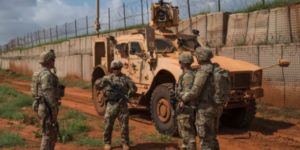In the military, a strict hierarchical structure defines the chain of command, with each service member holding a specific rank. When it comes to medical malpractice claims within the military healthcare system, the influence of military rank can introduce unique dynamics that impact the pursuit of justice. This blog explores how military rank can influence medical malpractice claims, examining the challenges and considerations that service members may face based on their rank.
Power Dynamics within Military Ranks:
The military operates on a clear hierarchy, where individuals with higher ranks hold authority over those with lower ranks. In the context of medical malpractice claims, power dynamics can influence how service members, depending on their ranks, navigate the process of seeking justice for malpractice incidents.
Communication Barriers:
Lower-ranking service members may encounter communication barriers when attempting to address or report medical malpractice incidents involving higher-ranking individuals. Fear of repercussions or concerns about undermining the chain of command can hinder open communication about potential malpractice.
Fear of Retaliation:
Service members at lower ranks may fear retaliation when pursuing medical malpractice claims involving individuals with higher ranks. The hierarchical structure creates a perceived risk of negative consequences, including professional repercussions or strained relationships within the unit.
Command Influence and Legal Proceedings:
Command influence, where the opinions or directives of higher-ranking individuals affect legal proceedings, can be a factor in military medical malpractice claims. The influence of higher-ranking officers may impact the objectivity of investigations and the willingness of witnesses to come forward.
Advocacy for Accountability:
Higher-ranking service members may have more resources and avenues to advocate for accountability in medical malpractice cases. They may possess greater access to legal assistance, the ability to navigate military bureaucracy more effectively, and potentially more influence in ensuring a thorough investigation.
Access to Medical Resources:
The influence of military rank can extend to access to medical resources. Higher-ranking officers may have greater access to specialized medical care, expert opinions, and alternative treatment options, influencing the trajectory of their medical malpractice claims.
Cultural Expectations and Subordination:
Cultural expectations within the military may reinforce a sense of subordination among lower-ranking service members. This can affect their willingness to challenge medical decisions, question diagnoses, or report malpractice incidents involving higher-ranking individuals.
Legal Protections for Service Members:
While military law provides protections for service members pursuing medical malpractice claims, the application of these protections may vary based on rank. Understanding the legal rights and protections available is crucial for all service members, regardless of their rank.
Challenges for Junior Officers:
Junior officers, while holding positions of leadership, may still face challenges when pursuing medical malpractice claims. Balancing the responsibility of command with the need to address potential malpractice incidents requires careful navigation of military hierarchies.
Importance of Legal Representation:
Regardless of rank, service members pursuing medical malpractice claims benefit significantly from legal representation. Attorneys specializing in military law and medical malpractice can provide guidance, ensure fair treatment, and advocate for the rights of service members throughout the legal process.
Conclusion:
The influence of military rank in medical malpractice claims introduces complexities and challenges that service members must navigate. If you or a loved one has experienced military medical malpractice, seeking legal guidance from professionals experienced in both military law and medical malpractice is essential. The team at ForTheMilitary.com is dedicated to assisting service members at all ranks in seeking justice for medical malpractice incidents. Understanding the dynamics of military hierarchies and legal protections is crucial in advocating for fair treatment and accountability.

 Call Now- Open 24/7
Call Now- Open 24/7





